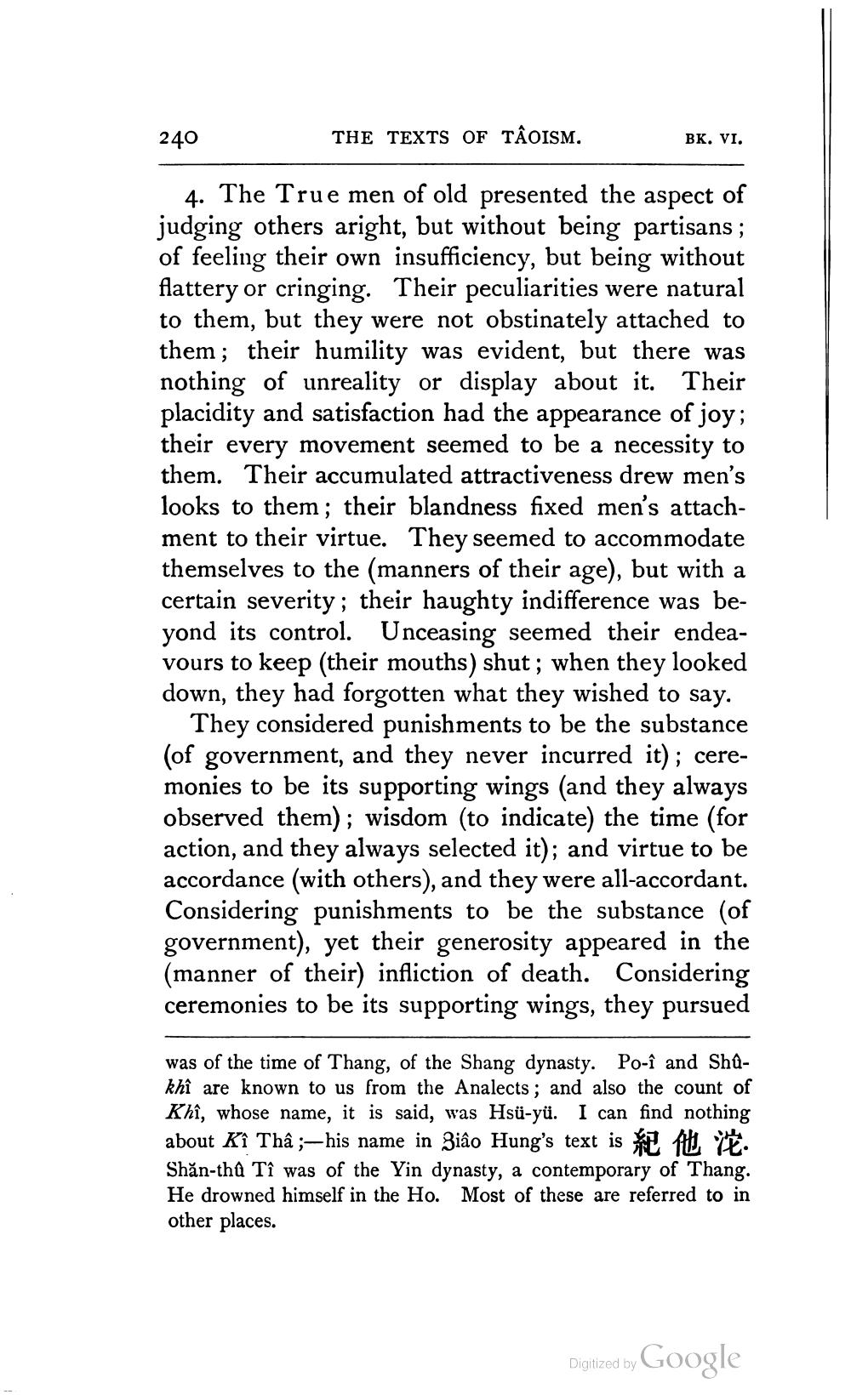________________
THE TEXTS OF TAOISM.
4. The True men of old presented the aspect of judging others aright, but without being partisans ; of feeling their own insufficiency, but being without flattery or cringing. Their peculiarities were natural to them, but they were not obstinately attached to them; their humility was evident, but there was nothing of unreality or display about it. Their placidity and satisfaction had the appearance of joy; their every movement seemed to be a necessity to them. Their accumulated attractiveness drew men's looks to them; their blandness fixed men's attachment to their virtue. They seemed to accommodate themselves to the (manners of their age), but with a certain severity; their haughty indifference was beyond its control. Unceasing seemed their endeavours to keep (their mouths) shut; when they looked down, they had forgotten what they wished to say.
They considered punishments to be the substance (of government, and they never incurred it); ceremonies to be its supporting wings (and they always observed them); wisdom (to indicate) the time (for action, and they always selected it); and virtue to be accordance (with others), and they were all-accordant. Considering punishments to be the substance (of government), yet their generosity appeared in the (manner of their) infliction of death. Considering ceremonies to be its supporting wings, they pursued
240
BK. VI.
was of the time of Thang, of the Shang dynasty. Po-î and Shûkhî are known to us from the Analects; and also the count of Khî, whose name, it is said, was Hsü-yü. I can find nothing about Kî Thâ;—his name in 3iâo Hung's text is
Shăn-thû Tî was of the Yin dynasty, a contemporary of Thang. He drowned himself in the Ho. Most of these are referred to in other places.
Digitized by Google




